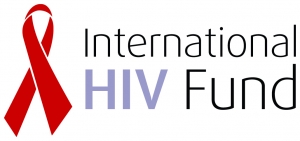Islam, the Family, and HIV/AIDS
by International HIV Fund
Written by Amina Wasi and Iftekhar Ahmed, International HIV Fund
The family in Islam
The family is considered to be the building block of society. In particular, the family plays a significant role in the Islamic system of life. This is because the family serves important objectives and functions that contribute towards the maintenance of a stable society. Not only does the family preserve and continue the human race; it maintains protection of morals, provides emotional stability, love, kindness as well as social and economic security. This is why the Prophet Muhammad (peace and blessing be upon him,) encouraged Muslims in a prophetic tradition:
“The best Muslim is the one who is best to his family.” (Tirmidi)
Although pre-marital relations are forbidden in Islam, Allah enjoined the bond of marriage to fulfill the man and woman’s needs and desires. The relationship between the husband and wife as father and mother in particular is a significant pillar upon which the entire construction of the family lays. It is because of this reason that their relationship should be one that is congenial, responsible and honest. Allah outlines how the relationship between the spouses should be in the Qur’an:
“Among His signs is that He has created spouses for you among yourselves so that you may dwell in tranquility with them, and He has planted love and mercy between you; in that are signs for people who reflect.” Qur'an [30:21]
Obligations and Responsibilities
Given the lifelong commitment of marriage, individuals seeking marriage should also know their obligations and responsibilities in regards to being a husband and wife. Honesty, faithfulness, intimacy and love are required by both persons. From amongst their responsibility is informing their potential spouse about any long-term illnesses, infections or hereditary conditions which may run in their family. It is also highly encouraged to get tested for any diseases that are prevalent within society before the onset of marriage.
HIV/AIDS & Muslims
Something which is on the rise within many Muslim countries and amongst Muslims is HIV. HIV, or Human Immunodeficiency Virus, is a life-threatening condition in which the body’s immune system fails to function properly; this virus is the cause of AIDS. The United Nations Joint Programme on AIDS (UNAIDS) estimates that as of 2009, around 33.4 million people were living with HIV/AIDS globally. Furthermore, according to UNAIDS there are an estimated 380,000 people (adult and children) living with HIV in North Africa and the Middle East. These are places where the majority of the populace is Muslim. Prevalence is also high in many Asian countries with large Muslim populations. In India there is an estimated 2.4 million people living with HIV with a prevalence rate of 0.3%. However, India is third with the largest number of people in the world living with HIV, and even an increase of just 0.1% would increase the HIV prevalence to over half a million. The seriousness of the statistics illustrate the importance of being tested before marriage because the spouse has the right to know about their potential husband or wife’s health status and anyone who hides it is neglecting their responsibility and could create future obstacles and health problems for their marriage and family. Not only that but it is important for the individual themselves as it reduces the risk of long term problems on their health.
For Muslims living with HIV, the social stigma attached to it discourages the involvement of their respective communities in addressing the existence of the virus. However, slowly but surely Muslim countries are addressing this issue. In recent years, Muslim countries and leaders in Malaysia, Saudi Arabia and Kenya are some of the countries that have begun to openly face the HIV/AIDS problem in their nations. Some have made pre-marriage HIV testing mandatory on potential couples after realizing the dangers of ignoring the global pandemic. Many test centres and places have been set up in these countries to provide tests to couples for HIV. In Kenya for example, government officials are advising couples to be honest with each other about test results, but also to be compassionate, and to treat those who have been affected with love and respect.
“Health is a Hidden Kingdom”
A simple test can save much suffering and lives. Islam in fact encourages one to value their bodies and lives and take precaution and measures that cause harm. In one of the Islamic traditions, it is stated that Dawud (David) (peace be upon him) said, “Health is a hidden kingdom”. A healthy body is a gift from Allah and we are not to abuse it but take care of it as it is a trust from Allah. We should avoid any act which will cause harm to our bodies both physically and spiritually.
What is a HIV Test?
It is a test which reveals whether HIV is present in the body. Most common HIV tests detect the antibodies produced by the immune system in response to HIV. These antibodies are produced by the immune system in response to an infection. If HIV happens to be present in your system then you can take precautions and get treatment sooner rather than later, as you can also prevent the spread of HIV to others. HIV testing can be done easily at your local health clinic, with your Doctor or at STI clinics specifically for this kind of testing.
To find out more about HIV/AIDS in Muslim communities and what we are doing to tackle it, visit our website: www.internationalhivfund.org

